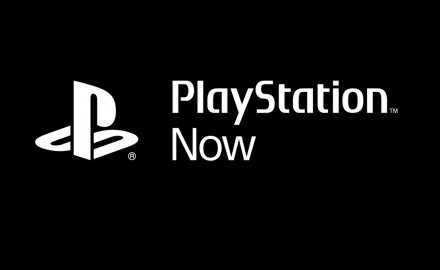 NEWS
NEWS
 NEWS
NEWS
 NEWS
NEWS
![]() Sony took to the stage at CES yesterday to announce its brand new cloud-based gaming service, called PlayStation Now, which aims to bring a range of classic PlayStation titles to all kinds of different gadgets, including smartphones and tablets. PlayStation Now will be available to US gamers in limited beta later this month, before rolling out globally by the end of the summer.
Sony took to the stage at CES yesterday to announce its brand new cloud-based gaming service, called PlayStation Now, which aims to bring a range of classic PlayStation titles to all kinds of different gadgets, including smartphones and tablets. PlayStation Now will be available to US gamers in limited beta later this month, before rolling out globally by the end of the summer.
Sony Computer Entertainment President Andrew House announced the rebranding of its Gaikai-based game streaming tech, pitching it as a device-agnostic way to get your gaming fix on the go. The good news (at least for old-skool gamers like me) is that support for PS2 games finally returns after being nixed in the early days of the PS3. The downside to this is that all of those games will reside in the cloud, which means they’re dependent on network stability and connection speeds. According to House, PlayStation Now will support PS3 games too, and we can assume, perhaps even some PS1 titles too.
What’s fascinating about all of this is that you no longer need Sony’s console to play PlayStation games. Besides being ‘streamable’ to the PS3, PS4 and PS Vita, the service will also be available on all manner of tablets, TVs, smartphones and PCs. PlayStation Now will “introduce the world of PlayStation to non-console owners, smartphones, TVs and other devices,” as House puts it. The service is currently being demonstrated at Sony’s CES booth on its Bravia TVs and Vita consoles.
Sony’s announcement comes as we learn that it’s taken an early lead over Microsoft in the next-generation console wars. Yesterday, Microsoft revealed that it had sold over 3 million Xbox One games consoles in 13 countries since its November launch. This is compared to the more than 4 million PlayStation 4’s that Sony had shipped as of December 28.
Sony might have taken an early lead in the race, but the launch of PlayStation Now underscores a key divergence in philosophies of what a games console should be, and this will surely have a big impact on sales in the longer term.
The PlayStation 4 has kept true to its gaming roots, being designed to satisfy hardcore gamers first and foremost, claims Cade Metz in Wired. That’s why Sony worked so closely with games developers when building the PS4, asking them what capabilities they’d like the new console to have, so they could build better games. To that end, Sony built the PS4 using souped-up PC parts with ease of programming in mind.
In contrast, Microsoft’s vision for the Xbox One is a kind of all-in-one system that integrates everything in the living room. The consoles comes with an cable box input that allows it to control your TV, while it features voice and gesture based controls through which you can surf the web and flick through the TV channels. The downside is its less about the games and hence, slightly less powerful than the PS4 – and it also costs $100 thanks to the Kinect camera.
Both philosophies could prove to be a winner. For Microsoft, there’s the potential of hitting a much larger audience who sort of like games but also want a cool way of integrating everything in their living rooms. Meanwhile, Sony seems to be hedging its bets solely on gaming, and for that reason the PS4 could end up being the platform of choice for all the hardcore gamers.
This is why PlayStation Now could be such a big deal for Sony. If the service takes off – and it’s a big “if” because we’ve yet to see a cloud game streaming service that works seamlessly without a hitch – Sony could find itself in a position where it doesn’t even need to sell any more consoles. All it would need to do is offer its platform to developers and publishers, and save itself a fortune on the costs of developing and building its consoles.
Support our mission to keep content open and free by engaging with theCUBE community. Join theCUBE’s Alumni Trust Network, where technology leaders connect, share intelligence and create opportunities.
Founded by tech visionaries John Furrier and Dave Vellante, SiliconANGLE Media has built a dynamic ecosystem of industry-leading digital media brands that reach 15+ million elite tech professionals. Our new proprietary theCUBE AI Video Cloud is breaking ground in audience interaction, leveraging theCUBEai.com neural network to help technology companies make data-driven decisions and stay at the forefront of industry conversations.